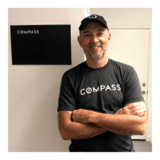Summary
When teams don’t know how to pivot, the resulting waste can lead to a slow down in product delivery. Unfortunately, such confusion occurs commonly in UX/Product teams where roles can blur, and overlap between responsibilities can be rampant. In this session, product expert Adam Thomas introduces the concept of “Survival Metrics” — an approach to team collaboration that not only encourages healthy pivots, but puts in place the mechanisms to achieve them. Stick around to join the conversation and ask Adam your questions during our post-session Q+A, moderated by Christian Crumlish.
Key Insights
-
•
60-90% of product ideas do not improve intended metrics, causing waste and burnout.
-
•
Steve Jobs’ reality distortion field exemplifies pushing forward without feedback, which can lead to failure in today’s environment.
-
•
Good strategy consists of diagnosis of the problem, a clear guiding policy, and coherent actions aligned to it.
-
•
Repeated incongruence—continuously reassessing incentives and data—strengthens decision-making muscles vital for pivots.
-
•
Building trust through recognition, challenge stress, discretion, and vulnerability is key to politically safe change.
-
•
Moving fast requires limiting options through predefined language and focusing on reversible, coin-flip decisions.
-
•
Being data-informed means using data to inform decisions, not blindly driving them; ignoring gut and context can be fatal (e.g., Challenger disaster).
-
•
Sensing metrics are time-bound, contextual, tied to decisions, and linked back to strategy—unlike traditional feature-focused roadmaps.
-
•
Stopping, pivoting, and investing early are essential decisions teams must iterate on to avoid sunk cost fallacy.
-
•
A clear story anchored in company culture with a villain (problem) helps communicate strategy and build trust for decision-making.
Notable Quotes
"60 to 90% of our ideas do not improve the metrics they were intended to improve."
"Everyone has a plan until they get punched in the mouth, said Mike Tyson."
"Feature roadmaps are bad because over time coherent actions become noise."
"Being data informed is not data driven—blindly following data can kill you, like the Challenger explosion."
"Stop, pivot, or invest early—these are the survival metric decisions that save companies."
"Trust is built by recognizing excellence, inducing challenge stress, giving discretion, and showing vulnerability."
"Most decisions are coin flip decisions—easily reversible and should be treated as defaults."
"You have to ask, what are we deciding, and what are we quitting, on a regular basis."
"If you’re not investing or quitting something, what is the point of having a strategy?"
"Repetition, representation, and association are the keys to great theater and great product development."
Or choose a question:
















More Videos

"Our principle is that whatever we build must help researchers avoid becoming a silo."
Sofia QuinteroThe Product Philosophy Behind EnjoyHQ
March 10, 2021

"Healthcare IT is a highly regulated industry with a lack of standardization and many legacy systems."
Laureen Kattan Julie KimCentering Patients and Clinicians in a Complex Government Ecosystem
November 29, 2023

"People here want to be here. They want the company to succeed and to see customers succeed."
Jen Crim Jess Quittner Saritha Kattekola Alex Karr Gurbani PahwaCulture, DIBS & Recruiting
June 11, 2021

"Tech workers in the UK are five times more depressed than the UK average, with stress killing creativity."
Dr. Karl JeffriesThe Science of Creativity for DesignOps
January 8, 2024

"By adopting our account recovery widget, QuickBooks saw a 13% increase in success rate overnight and a 52% reduction in support calls in one year."
Dawn ResselFull-Stack User Experiences: A Marriage of Design and Technology
June 9, 2016

"Design at scale is really humanism at scale."
Lada GorlenkoTheme 3: Introduction
June 10, 2021

"Land acknowledgments don’t actually change the allocation of power or resources; they work at the mythological level."
Victor UdoewaRadical Participatory Design: Decolonizing Participatory Design Processes
December 10, 2021

"Findings are observations with a short shelf life, whereas insights get deep into the why and the consequences."
Sara LogelYour Colleagues are Your Users Too
March 29, 2023

"If they can do it, so can I – that’s the takeaway from these transformation stories."
Lada GorlenkoTheme 1: Intro
January 8, 2024
Latest Books All books
Dig deeper with the Rosenbot
What signs indicate an organization is ready to experiment with coordinated collaboration approaches?
What practical steps did Flight Center take to scale research participation without sacrificing insight quality?
What does James mean by contrasting doom scrolling with active hope in the context of UX research?
















